Address
304 North Cardinal
St. Dorchester Center, MA 02124
Work Hours
Monday to Friday: 7AM - 7PM
Weekend: 10AM - 5PM
Address
304 North Cardinal
St. Dorchester Center, MA 02124
Work Hours
Monday to Friday: 7AM - 7PM
Weekend: 10AM - 5PM
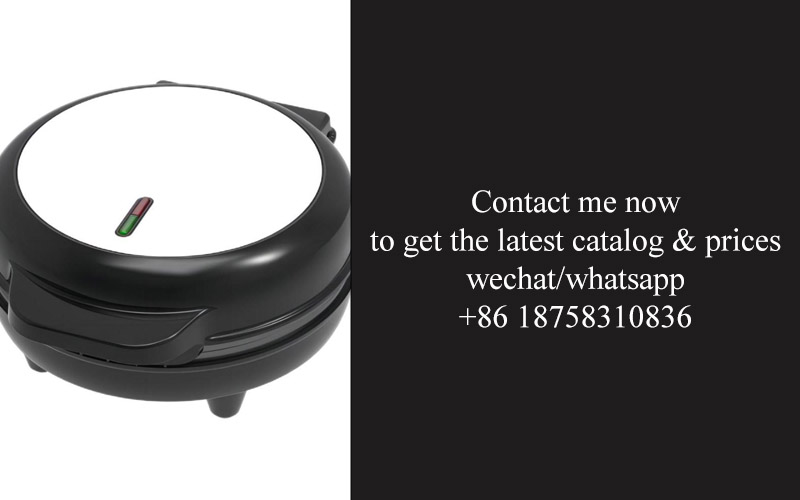
In a world where technology intertwines with daily life, the kitchen has become a hub of innovation. As we delve into the realm of integrated circuit (IC) boards, it’s fascinating to explore how these tiny marvels are revolutionizing the way we cook and live. From smart appliances that enhance efficiency to the sustainable practices shaping the industry, the future of kitchen appliances is bright and filled with endless possibilities. Join us as we navigate through the intricacies of this evolving landscape, uncovering the latest trends and the key factors that will define the future of integrated circuit boards in kitchen appliances.
In the not-so-distant past, the kitchen was a realm of manual labor and time-consuming tasks. But with the advent of smart technology, this beloved space is transforming into a hub of innovation and efficiency. Smart kitchen appliances are not just gadgets anymore; they are integral to modern living, and their rise is a testament to how far we’ve come.
Imagine a refrigerator that not only cools your food but also keeps track of your grocery list and suggests recipes based on what’s available. Or a stove that adjusts its temperature to the perfect setting for the dish you’re preparing, reducing cooking times and energy consumption. The possibilities are as limitless as the recipes themselves.
The kitchen is no longer just a place to cook; it’s a smart, connected ecosystem that enhances daily life. Smart ovens, dishwashers, and even blenders are now equipped with integrated circuits (ICs) that allow them to communicate, learn, and adapt to the user’s habits. This level of personalization was once a dream, but now it’s becoming a reality.
Smart appliances are not just convenient; they are also energy-efficient. With the world’s increasing focus on sustainability, these eco-friendly devices are becoming more popular. They optimize energy use, which not only saves money on utility bills but also contributes to a greener planet.
The integration of the Internet of Things (IoT) into kitchen appliances has opened up a new frontier. These devices can be controlled remotely through smartphones, tablets, or even voice assistants. The ability to start a load of dishes in the dishwasher or preheat the oven before you arrive home is not just a luxury; it’s a new standard of living.
In the world of smart kitchen appliances, the possibilities are endless. Imagine a kitchen that can predict your schedule and prepare meals at the optimal time, or one that can analyze your dietary needs and suggest a balanced diet. The future of cooking is not just about convenience; it’s about a holistic approach to health and well-being.
The technology behind these smart appliances is rapidly evolving. Integrated circuit board (ICB) factories are at the heart of this revolution, producing the microchips that power these devices. These factories are not just manufacturing parts; they are crafting the building blocks of a new era of kitchen technology.
The precision required in the production of ICs is unparalleled. Each board must be meticulously designed to fit the specific needs of the appliance it powers. From the smallest kitchen gadget to the most sophisticated oven, the quality and reliability of the ICs are crucial.
The rise of smart kitchen appliances is not just a trend; it’s a shift in how we interact with our environment. These devices are becoming more intuitive, more responsive, and more integrated into our daily lives. They are not just tools; they are companions that enhance our experience in the kitchen.
As ICB factories continue to innovate, we can expect even more sophisticated smart kitchen appliances to hit the market. The future will see devices that can anticipate our needs, learn from our preferences, and even offer predictive maintenance to extend their lifespan.
In conclusion, the rise of smart kitchen appliances is a glimpse into the future of home technology. It’s a future where the kitchen is not just a place to cook but a smart, efficient, and interconnected space that enriches our lives. And it’s all thanks to the relentless innovation of ICB factories and the ever-growing list of smart devices that are redefining what it means to be a modern cook.

In the heart of the modern kitchen revolution, integrated circuit (IC) board factories play a pivotal role. These factories are the unsung heroes behind the sleek, smart appliances that have transformed our culinary experiences. Let’s delve into the essential functions and contributions of these factories.
The precision and sophistication required to manufacture IC boards are unparalleled. These boards are the brain of every smart kitchen appliance, from refrigerators that optimize temperature to ovens that can mimic the perfect roast. The intricate design and high-quality materials used in these boards ensure that the appliances they power are reliable and efficient.
As technology advances, so does the complexity of IC boards. Factories must keep pace with the latest innovations, such as the integration of artificial intelligence and the Internet of Things (IoT). This integration allows appliances to communicate with each other, learn from usage patterns, and adapt to the needs of the user. The production process in these factories is a blend of cutting-edge technology and meticulous craftsmanship.
Quality control is paramount in the IC board manufacturing industry. Each board is subjected to rigorous testing to ensure it meets the stringent standards set by appliance manufacturers. This includes testing for durability, heat resistance, and electrical performance. The factories invest heavily in automated testing equipment and skilled technicians to guarantee that every board that leaves their facility is of the highest quality.
The supply chain is another critical aspect of IC board factories. They must maintain a delicate balance between meeting the demand for their products and ensuring that the components used are of the highest quality. This often involves working closely with suppliers from around the world, managing logistics, and adhering to strict timelines. The efficiency of the supply chain directly impacts the speed at which new appliances can be brought to market.
The environmental impact of IC board manufacturing is also a significant concern. Factories are increasingly adopting green practices to reduce their carbon footprint. This includes using energy-efficient machinery, recycling materials, and implementing waste reduction programs. These efforts not only benefit the planet but also enhance the reputation of the factories as responsible corporate citizens.
Innovation is the lifeblood of IC board factories. They are constantly pushing the boundaries of what’s possible, developing new materials and manufacturing techniques that can lead to even more advanced appliances. For example, the development of flexible IC boards has opened up new possibilities for kitchen appliances that can conform to different shapes and sizes.
The collaboration between IC board factories and appliance manufacturers is a symbiotic relationship. Factories provide the technology that powers the appliances, while manufacturers focus on the design and user experience. This partnership allows for a seamless integration of technology into the appliance, resulting in products that are both functional and aesthetically pleasing.
The global nature of the industry means that IC board factories must navigate a complex web of regulations and certifications. They must comply with international standards for safety, health, and environmental protection. This requires a deep understanding of these regulations and the ability to adapt to changing requirements.
As the demand for smart kitchen appliances continues to grow, so does the importance of IC board factories. They are not just producing components; they are shaping the future of home cooking. The ability to customize and personalize appliances through IC boards is changing the way we interact with our kitchen technology.
The future of IC board factories lies in their ability to innovate and adapt. As new technologies emerge, such as quantum computing and 5G connectivity, these factories will be at the forefront of integrating them into kitchen appliances. This will not only enhance the functionality of the appliances but also create entirely new categories of smart kitchen devices.
In conclusion, the role of IC board factories in the smart kitchen revolution cannot be overstated. They are the silent architects of the modern kitchen, providing the technology that powers the appliances that make cooking easier, more efficient, and more enjoyable. Their commitment to quality, innovation, and sustainability ensures that the future of kitchen appliances is bright and full of possibilities.

In the ever-evolving landscape of kitchen appliances, innovation is the key driver behind the seamless integration of technology and functionality. From sleek, space-saving designs to features that cater to the modern cook’s needs, the realm of kitchen appliance design is constantly pushing boundaries.
Modern kitchen appliances are not just tools for cooking; they are extensions of our daily routines, designed to enhance convenience and efficiency. One of the most notable trends in recent years has been the adoption of smart technology, which allows appliances to communicate and interact with users in ways that were once unimaginable.
Gone are the days when the oven was just a box that heated up. Today, smart ovens can be controlled remotely through smartphones, offering precise temperature control and even suggesting recipes based on the user’s preferences and the ingredients on hand. These advancements are made possible by the sophisticated integrated circuit boards (ICBs) that power these smart appliances.
The design of these ICBs has become more compact, allowing for sleeker, more integrated appliances. For instance, refrigerators now feature touchscreens that can display recipes, manage grocery lists, and even remind users when to restock. The ability to integrate multiple functionalities into a single device is a testament to the ingenuity of IC board manufacturers.
Innovation in kitchen appliance design is also focused on user experience. Appliances with intuitive interfaces and voice-activated controls are becoming increasingly popular. These features not only simplify the cooking process but also cater to those who may have physical limitations or prefer hands-free operation.
Safety is another area where design has made significant strides. Appliances with built-in sensors that can detect smoke, gas leaks, or even overfilling have become standard. These sensors can automatically shut off the appliance or alert the user and authorities in case of an emergency, making kitchens safer than ever before.
Energy efficiency is a growing concern, and appliance designers are responding with products that consume less power while still delivering optimal performance. Smart ICBs are playing a pivotal role in this shift, allowing appliances to adjust their energy use based on usage patterns and environmental conditions.
Moreover, the customization of kitchen appliances is becoming more accessible. Customizable interfaces and even modular designs that allow users to swap out components for their specific needs are becoming more common. This not only extends the lifespan of the appliance but also ensures that it remains relevant and useful for years to come.
The design of kitchen appliances is also being influenced by the need for sustainability. Eco-friendly materials and manufacturing processes are being employed to reduce the environmental impact of these products. Appliances that can be recycled or disassembled for easy repair are becoming more prevalent, reflecting a commitment to a greener future.
Designers are also focusing on the aesthetic appeal of kitchen appliances. With sleek lines, high-quality finishes, and modern aesthetics, appliances are no longer just functional but also serve as a decorative element in the home. The fusion of form and function is at the heart of this design philosophy.
In the world of kitchen appliances, innovation is not just about adding new features; it’s about creating a cohesive experience that is both user-friendly and sustainable. The role of IC board factories in this process is indispensable. They provide the technological backbone that enables these innovative designs to come to life, ensuring that the future of the kitchen is bright and filled with possibilities.
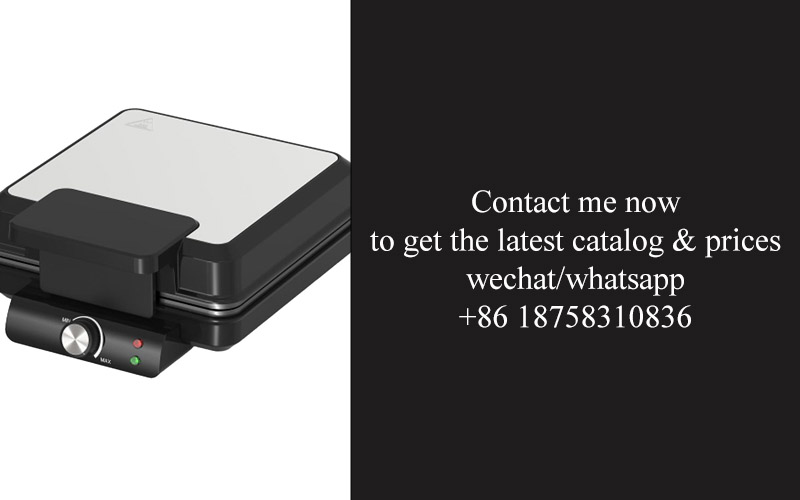
In the realm of culinary arts, technology has revolutionized the way we cook, making the process not only more efficient but also more enjoyable. From precision cooking to energy savings, the impact of technology on cooking efficiency is profound.
Smart Sensors and Temperature ControlModern kitchen appliances are equipped with smart sensors that can precisely monitor and control cooking temperatures. These sensors ensure that food is cooked to perfection, whether it’s a delicate pastry or a hearty stew. With the ability to maintain a consistent heat, these appliances reduce the risk of overcooking or undercooking, saving both time and ingredients.
Automated Cooking ProgramsMany kitchen appliances now come with pre-programmed cooking modes that cater to a wide range of recipes. From slow cookers to rice cookers, these programs automate the cooking process, allowing users to set the appliance and walk away. This not only saves time but also ensures that the food is cooked exactly as the recipe dictates, enhancing the overall efficiency of the cooking experience.
Energy-Efficient DesignEnergy efficiency has become a cornerstone in kitchen appliance design. Innovations such as LED lighting, energy-saving motors, and advanced insulation in ovens and refrigerators have significantly reduced the energy consumption of cooking appliances. This not only helps homeowners save on their utility bills but also contributes to a greener, more sustainable lifestyle.
Smart ConnectivityThe integration of smart technology has brought kitchen appliances into the digital age. Smart connectivity allows users to control their appliances remotely via smartphones or smart home systems. This means you can start your coffee maker before you wake up, preheat your oven while you’re on your way home, or even check the status of your slow cooker while you’re at work. This level of connectivity ensures that your food is ready exactly when you need it, without any unnecessary energy waste.
Precision Cooking TechniquesAdvancements in cooking technology have led to the development of precision cooking techniques. For instance, air fryers use a combination of hot air and a small amount of oil to achieve a crispy texture without the need for deep frying. This method is not only healthier but also more efficient, as it requires less oil and cooks food faster than traditional frying methods.
Automated Cleaning SystemsCleaning up after cooking can be a time-consuming task. However, technology has made strides in this area as well. Self-cleaning ovens, dishwashers with advanced wash cycles, and even robotic vacuum cleaners designed for kitchen floors have made post-cooking cleanup much more efficient. These innovations save time and effort, allowing cooks to focus on the creative aspects of cooking rather than the cleanup.
Enhanced Food StorageRefrigerators and freezers have also seen technological advancements that impact cooking efficiency. Features like temperature sensors, adjustable humidity settings, and smart shelves that optimize storage space ensure that food stays fresh longer. This not only reduces food waste but also means that you can store ingredients for longer periods, making meal preparation more efficient.
Interactive Cooking AssistantsInteractive cooking assistants, such as smart cookbooks and voice-activated kitchen gadgets, provide real-time guidance and tips. These devices can suggest alternative ingredients, cooking times, and techniques based on the user’s preferences and the ingredients on hand. This level of personalization and assistance makes cooking more efficient by eliminating guesswork and ensuring that every dish is cooked to the highest standard.
In conclusion, technology has had a transformative impact on cooking efficiency. From the precision of smart sensors to the convenience of smart connectivity, these innovations have made cooking faster, more accurate, and less labor-intensive. As technology continues to evolve, we can expect even more efficient and innovative cooking solutions that will further revolutionize the way we prepare our meals.

In the ever-evolving landscape of kitchen appliances, understanding consumer desires is paramount. As technology advances, so do the expectations of those who seek to enhance their culinary experiences. Here’s a peek into what consumers are currently seeking in the market:
Smart ConnectivityConsumers are increasingly drawn to appliances that offer seamless integration with their smart devices. From smartphones to smart home systems, the ability to control kitchen appliances remotely is a significant draw. Smart ovens that can receive recipe instructions via an app, or refrigerators that can be monitored for food freshness, are becoming more popular.
Energy EfficiencyWith environmental concerns on the rise, energy-efficient appliances are no longer a niche market. Consumers are looking for products that not only save them money on utility bills but also contribute to a greener planet. Energy-saving labels and certifications are becoming key factors in purchasing decisions.
Ease of UseThe days of complex interfaces and unnecessary features are fading. Consumers are gravitating towards appliances that are intuitive and straightforward. From touchscreens to voice-activated controls, the emphasis is on user-friendliness. A well-designed appliance that requires minimal effort to operate is highly sought after.
Quality and DurabilityThe initial cost of a kitchen appliance is a significant investment for many consumers. As such, they look for products that offer long-term value. High-quality materials, robust construction, and a reputation for durability are factors that can sway a purchase decision.
Customization and PersonalizationTailoring appliances to individual needs is becoming more common. Consumers are interested in appliances that can be customized to their specific cooking styles or kitchen layouts. From adjustable oven racks to refrigerators with customizable storage options, personalization is key.
Health and Safety FeaturesAs health consciousness grows, so does the demand for appliances that promote safe and healthy cooking. Features like non-stick surfaces that reduce the need for harmful chemicals, or appliances with built-in air filtration systems, are becoming more attractive to health-conscious consumers.
SustainabilityThe concept of sustainability is seeping into every aspect of consumer life, including the kitchen. Products made with sustainable materials, those that are recyclable, or those that contribute to a lower carbon footprint are gaining traction. Consumers are more likely to support brands that align with their values regarding the environment.
Aesthetic AppealWhile functionality is king, the look and feel of kitchen appliances are also important. Sleek designs, modern aesthetics, and the ability to complement a variety of kitchen styles are crucial. Consumers are not just looking for appliances that work well; they want them to look good as well.
Technology IntegrationThe integration of advanced technology, such as AI and machine learning, is becoming a sought-after feature. Appliances that can learn from usage patterns, suggest recipes, or even anticipate when maintenance is needed are becoming increasingly popular.
AffordabilityDespite the rise in technology and features, affordability remains a crucial factor. Consumers are looking for a balance between quality, functionality, and price. Appliances that offer premium features at a reasonable cost are more likely to succeed in the market.
Brand ReputationThe reputation of the brand is a silent influencer in the purchasing decision. Consumers often trust well-established brands that have a history of producing reliable and high-quality products. A strong brand reputation can be a significant differentiator in a crowded market.
In conclusion, the market trends indicate that consumers are seeking smart, efficient, and user-friendly kitchen appliances that align with their values and preferences. As technology continues to advance, the kitchen of the future will be a blend of innovation, sustainability, and convenience, catering to the evolving desires of consumers.
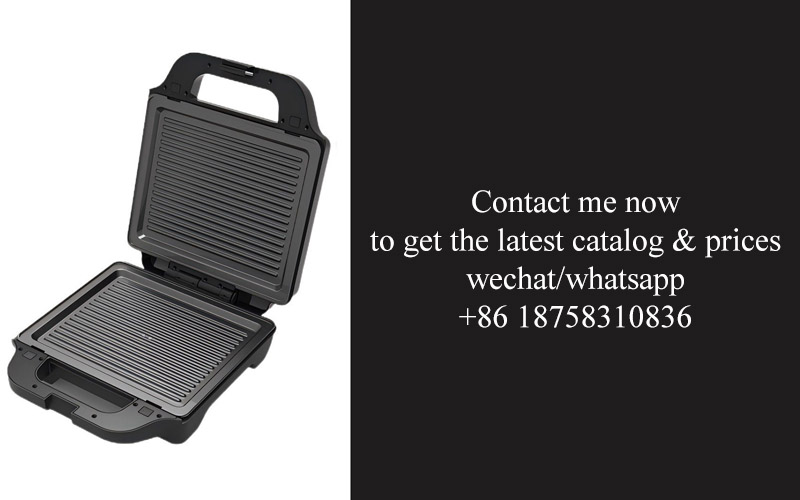
The modern kitchen is a testament to the ever-evolving relationship between technology and sustainability. Smart kitchen tech is not just about convenience; it’s a fusion of efficiency, eco-friendliness, and cutting-edge innovation. Let’s delve into how these elements intersect and what consumers are seeking in this harmonious blend.
Smart appliances are now equipped with sensors that optimize energy use, ensuring that your fridge doesn’t run when it’s not necessary or your oven heats up only to the perfect temperature. This precision not only saves energy but also reduces carbon emissions, a crucial factor in the minds of environmentally conscious consumers.
Energy-efficient cooking has become a staple in the smart kitchen. Induction cooktops, for example, heat pots and pans directly, eliminating the need for excess energy that traditional cookers waste in heating the air around them. This targeted heating means shorter cooking times, which can reduce the overall energy consumption of your cooking routine.
Smart refrigerators are more than just a sleek design; they are designed to minimize food waste. With features like motion sensors that adjust lighting for better visibility and timers that remind you to use perishable items before they spoil, these refrigerators help consumers make more sustainable choices in their daily meals.
The integration of smart kitchen tech with renewable energy sources is another significant trend. Solar-powered ovens and induction cookers are becoming increasingly popular, allowing homeowners to harness the power of the sun to prepare meals. This not only reduces reliance on fossil fuels but also fosters a sense of self-sufficiency and connection to nature.
Water conservation is a growing concern, and smart kitchen tech is responding with innovative solutions. Faucets and dishwashers that automatically adjust water flow based on the task at hand help to reduce water usage. Some models even have built-in filtration systems, reducing the need for single-use plastics and promoting a circular economy.
The demand for appliances that are not just smart but also repairable and upgradable is on the rise. Consumers are increasingly interested in products that last longer and can be maintained or updated over time. This approach not only extends the lifespan of the appliance but also aligns with the principles of sustainability by reducing the need for frequent replacements.
Smart kitchen tech is also addressing the issue of food miles, the distance food travels from the farm to the consumer’s plate. Local produce tracking systems in smart refrigerators, coupled with community-supported agriculture (CSA) integration, empower consumers to make informed choices about the food they purchase, supporting local farmers and reducing the carbon footprint associated with transportation.
The use of sustainable materials in kitchen appliances is another key area of focus. Recycled plastics, biodegradable components, and eco-friendly finishes are becoming standard, reflecting a broader shift towards a greener lifestyle. Consumers are gravitating towards products that reflect their values, and manufacturers are responding by offering a range of sustainable options.
As the world becomes more digitized, smart kitchen tech is also focusing on data analytics to provide insights that can help consumers make more sustainable choices. From energy consumption reports to meal planning suggestions that reduce food waste, these technologies are not just smart; they’re smart about sustainability.
In the realm of smart kitchen tech, the intersection of sustainability and innovation is clear. Consumers are seeking appliances that not only simplify their lives but also do so in a way that is respectful to the environment. The market is responding with products that are not just efficient but also ethical, fostering a new era of eco-conscious living in the heart of the home.

In the realm of kitchen appliance manufacturing, several IC board factories have emerged as trailblazers, revolutionizing the sector with their innovative approaches and successful strategies. Let’s delve into a few case studies that showcase the achievements of these notable factories.
One such factory, known for its cutting-edge technology and meticulous craftsmanship, has seen remarkable growth by focusing on energy efficiency and smart integration. Their products, ranging from induction cooktops to smart refrigerators, are not only sleek and modern but also boast advanced features that cater to the evolving needs of consumers.
This factory has implemented a rigorous quality control process, ensuring that each IC board is meticulously tested and verified before being installed in their appliances. Their commitment to excellence has led to a high demand for their products, both domestically and internationally.
Another factory stands out for its sustainable practices and eco-friendly designs. By using recycled materials and reducing waste throughout the production process, they have become a leader in the green appliance movement. Their smart kitchen appliances, equipped with intelligent energy-saving modes, have resonated with environmentally conscious consumers, leading to a significant market share.
The factory’s innovative use of IoT (Internet of Things) technology in their kitchen appliances has allowed for seamless integration with other smart home devices. This interconnectedness has not only enhanced the user experience but has also opened up new avenues for product development and customer engagement.
A third factory has made a name for itself by specializing in customized IC board solutions for niche markets. Recognizing the diversity of consumer preferences, they offer tailored appliances that cater to specific cooking styles and dietary requirements. This approach has garnered them a loyal customer base and a reputation for being customer-centric.
Their research and development team continuously works on integrating the latest advancements in AI and machine learning into their appliances. This has resulted in kitchen gadgets that can learn and adapt to individual user habits, providing personalized cooking recommendations and optimizing performance.
These factories have also leveraged the power of data analytics to gain insights into consumer behavior. By analyzing usage patterns, they have been able to refine their products and address any potential issues before they arise. This proactive approach has not only improved customer satisfaction but has also reduced the number of returns and repairs.
Another standout case is a factory that has embraced the digital transformation by investing heavily in automation. Their state-of-the-art manufacturing facility uses robotics and AI to streamline production processes, reducing errors and increasing efficiency. This has allowed them to produce high-quality appliances at a competitive cost, making them a preferred choice for both retail and commercial markets.
These successful IC board factories in the kitchen appliance sector have demonstrated that innovation, sustainability, and customer-centricity are key to staying ahead in a rapidly evolving market. By continuously pushing the boundaries of what is possible, they are shaping the future of smart kitchen technology.

In the ever-evolving landscape of technology, IC board manufacturers find themselves at the heart of innovation, particularly in the kitchen appliance sector. The challenges and opportunities that lie ahead are both daunting and exciting, requiring a strategic approach to stay competitive and meet the demands of a changing market.
The demand for energy efficiency and smart functionality has surged, pushing IC board manufacturers to develop more advanced and integrated solutions. As consumers seek appliances that not only save energy but also offer connectivity and customization, the pressure to innovate is immense. One opportunity lies in the development of energy-saving microcontrollers that can optimize appliance performance, reducing energy consumption and costs for users.
Another challenge is the need for flexibility in production. As kitchen appliances become more diverse, with specialized features catering to niche markets, manufacturers must adapt their processes to accommodate a wider range of IC board designs. This means investing in advanced manufacturing techniques and equipment that can handle varying complexities without compromising quality.
The rise of the Internet of Things (IoT) has opened up a world of possibilities for IC board manufacturers. Appliances that can communicate with each other and with the user’s smartphone or smart home system are becoming the norm. However, this also means ensuring that the IC boards are secure, as kitchen appliances are prime targets for cyberattacks. Manufacturers must balance connectivity with robust cybersecurity measures, which can be a significant opportunity for those who excel in this area.
Material advancements are another critical factor. As the push for sustainability grows, IC board manufacturers are looking to alternative materials that are not only durable but also environmentally friendly. This could mean exploring biodegradable plastics or recycled metals for component enclosures, which can reduce the environmental impact of their products.
Moreover, the integration of AI and machine learning into kitchen appliances is on the rise. IC boards that can process and learn from data to improve performance or predict maintenance needs are becoming more common. This presents an opportunity for manufacturers to create appliances that not only save time and effort but also enhance the cooking experience. However, it also requires a deep understanding of AI algorithms and the ability to implement them effectively in a compact and power-efficient manner.
The global supply chain is a double-edged sword for IC board manufacturers. On one hand, it offers access to a vast market, but on the other, it’s susceptible to disruptions. Manufacturers must find ways to ensure supply chain resilience, whether through diversifying suppliers or investing in local production facilities to mitigate the risk of delays.
Regulatory compliance is another challenge. Different regions have varying standards for safety, energy efficiency, and emissions. Navigating these regulations while maintaining a competitive edge requires a keen eye on market trends and a willingness to invest in research and development to meet these requirements.
The opportunity here is clear: manufacturers who can navigate these challenges effectively will be well-positioned to capture a larger share of the market. This could involve investing in cutting-edge research facilities, fostering partnerships with academic institutions, or even developing their own proprietary technologies.
Lastly, the opportunity to personalize kitchen appliances through IC boards is immense. As consumers become more discerning, they’re looking for products that cater to their specific needs and preferences. IC boards that can support this level of personalization, whether through customizable settings or predictive maintenance, will be highly sought after.
In summary, the challenges and opportunities for IC board manufacturers in the kitchen appliance sector are multifaceted. From energy efficiency and material innovation to cybersecurity and AI integration, the path forward is complex but filled with potential. Those who can embrace these challenges and capitalize on the opportunities will undoubtedly shape the future of smart kitchen technology.
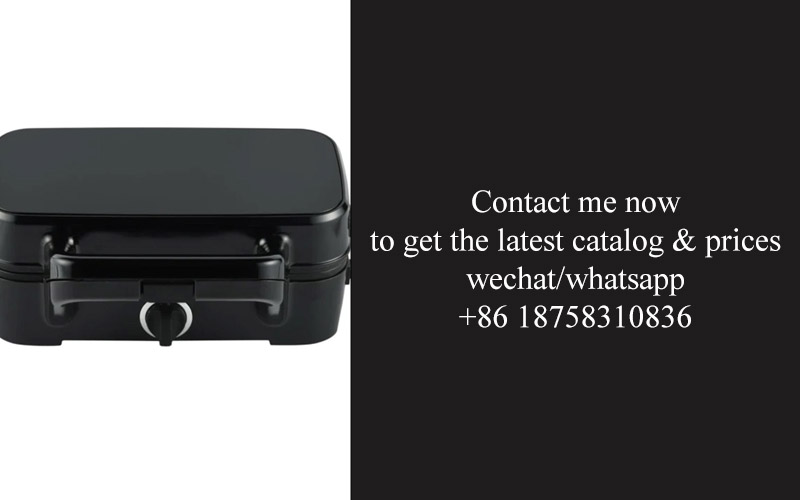
In a market that’s as dynamic as the kitchen appliance industry, staying ahead of the curve is essential. Here’s a closer look at how manufacturers can maintain a competitive edge:
The demand for innovation is relentless. Consumers are not just looking for appliances that work; they’re seeking those that integrate seamlessly into their lifestyles and offer smart, intuitive features. To keep pace, manufacturers must invest in R&D, pushing the boundaries of what’s possible.
Customization is key. The era of one-size-fits-all is fading. Today’s consumers want appliances that can be tailored to their specific needs and preferences. This means offering a range of options, from size and color to advanced functionalities, all while ensuring quality and durability.
Partnerships are powerful. Collaborating with other companies can lead to groundbreaking products. By joining forces with tech giants, foodservice experts, or even home designers, manufacturers can create appliances that not only perform well but also tell a story and offer a unique brand experience.
Sustainability is non-negotiable. As the world becomes more environmentally conscious, consumers are gravitating towards appliances that are energy-efficient and eco-friendly. Investing in sustainable materials and manufacturing processes is not just a moral imperative; it’s a smart business strategy.
Customer service is king. In a crowded market, exceptional customer service can be the difference between a one-time purchase and a lifelong customer. Offering personalized support, easy-to-access troubleshooting, and a seamless warranty process can foster loyalty and brand advocacy.
Embrace digital transformation. The digital landscape is evolving rapidly, and manufacturers must adapt. This means leveraging data analytics to improve product design, engaging with customers through social media and online forums, and ensuring that their products are compatible with the latest smart home technologies.
Stay agile. The ability to pivot quickly in response to market changes is crucial. Whether it’s a shift in consumer preferences, technological advancements, or regulatory changes, manufacturers must be ready to adapt and evolve without losing sight of their core values.
Invest in talent. The most successful companies are those that attract and retain the best talent. A diverse and skilled workforce can drive innovation, solve complex problems, and bring fresh perspectives to the table.
Keep an eye on the future. Long-term planning is essential. By staying abreast of emerging technologies and market trends, manufacturers can position themselves for long-term success.
Leverage the power of storytelling. In a world where information is abundant, how a company communicates its values and products can make all the difference. A compelling brand story can create an emotional connection with customers and set a brand apart.
Monitor industry benchmarks. Staying informed about what competitors are doing can provide valuable insights. Understanding industry standards and identifying gaps in the market can help guide product development and marketing strategies.
Remember, the landscape is always changing. What works today may not work tomorrow. Continuous learning and adaptation are the cornerstones of staying ahead in the competitive landscape.
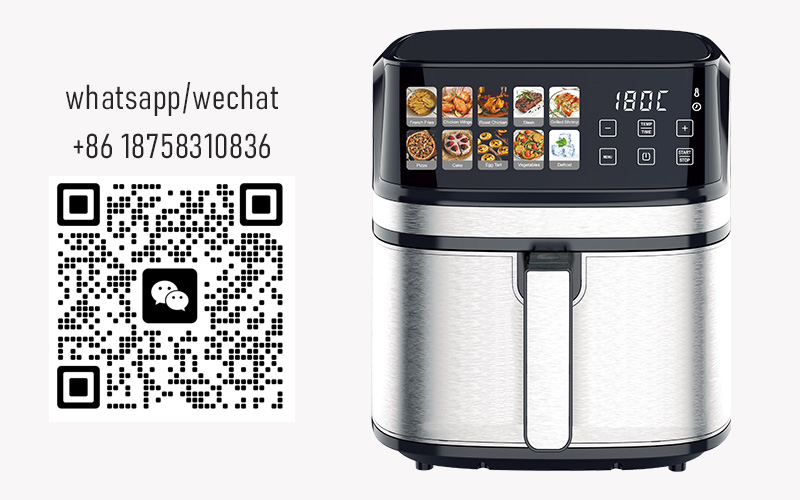
In the ever-evolving landscape of kitchen appliances, integrated circuit boards (ICBs) have become the beating heart of innovation. As we delve into the future, the role of these tiny components cannot be overstated. From enhancing user experience to driving efficiency and sustainability, the future of ICBs in kitchen appliances is a tapestry woven with both challenges and opportunities. Let’s explore the intricate threads that are shaping this future.
The demand for smart kitchen appliances is on the rise, and with it, the complexity of the ICBs required to power these devices. These microchips are not just about processing power; they are about creating seamless, intuitive, and energy-efficient experiences. The integration of artificial intelligence (AI) and the Internet of Things (IoT) into kitchen appliances has opened new avenues for ICB development, pushing the boundaries of what’s possible.
As consumers, we seek appliances that not only simplify our lives but also align with our values. The shift towards sustainability is a significant trend that is reshaping the kitchen appliance market. ICBs play a pivotal role in this transition by enabling appliances to consume less energy, reduce waste, and offer eco-friendly features. From energy-saving modes to smart recycling systems, the future of ICBs in kitchen appliances is inherently green.
One cannot ignore the impact of globalization on the IC board manufacturing sector. With a global market that spans continents, manufacturers must navigate diverse regulatory landscapes, supply chain complexities, and cultural preferences. This has led to a surge in the development of region-specific ICBs that cater to local needs while maintaining global standards.
Innovation in ICB design is not just about improving performance; it’s about creating solutions that are scalable and adaptable. For instance, the development of flexible ICBs has allowed for appliances that can be rolled up or folded away, addressing space constraints in modern homes. Such advancements not only make appliances more convenient but also reduce the environmental footprint by using less material.
The rise of modular kitchen appliances has been a game-changer. With ICBs at the core, these appliances can be easily upgraded or replaced with new modules, ensuring that the technology in your kitchen remains cutting-edge without the need for a complete overhaul. This approach not only extends the lifespan of the appliance but also allows for a more personalized and customizable kitchen experience.
Security is another critical aspect that ICBs must address. As kitchen appliances become more connected, ensuring the safety of the data they process and the privacy of their users is paramount. Advanced encryption and secure communication protocols are being integrated into ICBs to protect against cyber threats, making smart kitchen appliances a secure investment.
The challenges ahead for IC board manufacturers are as significant as the opportunities. As technology advances, the demand for more powerful and efficient ICBs increases. This necessitates constant research and development to keep up with the pace of innovation. Additionally, the need for sustainable and environmentally friendly manufacturing processes is becoming more pressing, as the industry must balance growth with ecological responsibility.
The competitive landscape is fierce, with numerous players vying for a piece of the lucrative kitchen appliance market. To stay ahead, manufacturers must be agile, embracing new technologies and adapting quickly to market changes. Collaboration with other industry players, such as appliance manufacturers and software developers, can also provide a competitive edge by fostering innovation and shared knowledge.
The future of integrated circuit boards in kitchen appliances is one of continuous evolution. As we move forward, we can expect to see even more sophisticated and intelligent appliances that enhance our daily lives. From the smallest countertop blender to the most advanced smart oven, ICBs will be at the forefront of this transformation.
In conclusion, the future of ICBs in kitchen appliances is bright, but it is not without its complexities. The industry must navigate a path that balances technological advancement with environmental stewardship, while also meeting the ever-changing demands of consumers. By doing so, the future promises a kitchen that is not just smart but also sustainable, efficient, and tailored to the needs of its users.